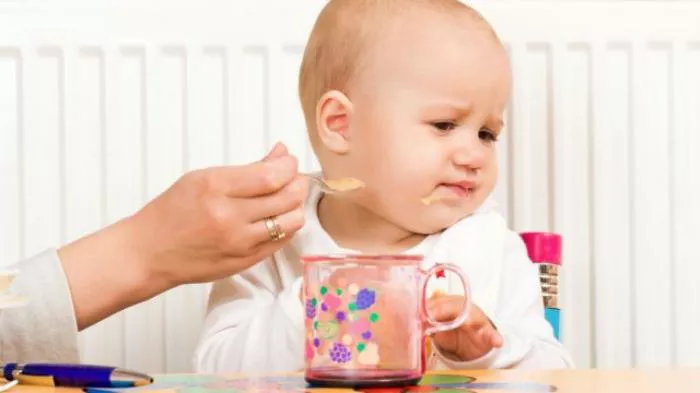When an infant catches a cold, it can be concerning for parents. Infants have delicate systems, and knowing how to care for them is essential. This article will guide you through what you can give your infant when they have a cold. We will discuss safe options for relief, as well as general care tips to help your little one feel better.
Understanding the Common Cold in Infants
A cold is a viral infection. It is common in infants and young children. Symptoms can include a runny nose, sneezing, coughing, and sometimes a mild fever. Infants may also be irritable and have trouble sleeping. It is important to remember that colds are usually mild and resolve on their own within a week to ten days.
Signs of a Cold in Infants
Before considering what to give an infant, it’s important to recognize the signs of a cold. Common symptoms include:
Runny or stuffy nose
Coughing
Sneezing
Mild fever
Irritability
Difficulty sleeping
If your infant shows signs of a cold, there are safe methods to help them feel more comfortable.
What You Can Give an Infant with a Cold
Hydration is Key
Staying hydrated is crucial for an infant with a cold. If your baby is breastfeeding, continue to nurse them. Breast milk provides essential nutrients and helps keep them hydrated.
If your baby is formula-fed, ensure they are drinking enough formula. For older infants (over six months), you can also offer small amounts of water. Hydration helps thin mucus, making it easier for your baby to breathe.
Saline Nose Drops
Saline nasal drops are a safe option to help relieve nasal congestion. They work by moistening the nasal passages. This can help loosen mucus and make it easier for your infant to breathe.
You can use saline drops several times a day. To use, simply place one or two drops in each nostril. After a minute, you can use a bulb syringe to gently suction out any loosened mucus.
Humidifiers
Using a humidifier can provide significant relief for an infant with a cold. A cool-mist humidifier adds moisture to the air. This helps ease congestion and coughing.
Make sure to clean the humidifier regularly to prevent mold and bacteria growth. Place it in your baby’s room while they sleep to ensure they breathe easier through the night.
Warm Baths
A warm bath can soothe an infant with a cold. The steam from the warm water can help clear nasal congestion.
While giving your baby a bath, be sure to keep the water at a safe temperature. Always supervise your infant during bath time. After the bath, dress them warmly to keep them comfortable.
Honey (for Older Infants)
For infants over one year old, honey can be a natural remedy for coughs. Honey has soothing properties and can help reduce coughing.
You can give your baby half a teaspoon of honey before bedtime. However, do not give honey to infants under one year old due to the risk of botulism.
Over-the-Counter Medications
Consult your pediatrician before giving any over-the-counter medications to your infant. Many common cold medications are not safe for babies under two years old.
If your doctor recommends it, acetaminophen can help reduce fever and relieve discomfort. Always follow the dosage instructions based on your baby’s weight.
Elevating the Head
When your baby sleeps, slightly elevating their head can help relieve nasal congestion. You can do this by placing a rolled-up towel under the mattress.
Do not place pillows in the crib with infants, as this can pose a suffocation risk. Always prioritize safety during sleep.
General Care Tips
Monitor Symptoms
Keep a close eye on your infant’s symptoms. Most colds will improve within a week. However, if symptoms worsen or if your baby develops a high fever, consult your pediatrician.
Encourage Rest
Rest is essential for recovery. Make sure your baby gets plenty of sleep. Provide a calm environment. Limit stimulating activities, so they can rest well.
Maintain a Comfortable Environment
Keep the room temperature comfortable. Dress your baby in light clothing, as overheating can make symptoms worse.
Keep the air in the room well-ventilated. Open a window if the weather permits, or use a fan to circulate air.
Practice Good Hygiene
Prevent the spread of germs by practicing good hygiene. Wash your hands frequently, especially after caring for your sick baby.
Avoid exposing your baby to sick individuals, as colds are contagious. If someone in the household is sick, try to keep them away from the baby.
When to Seek Medical Attention
While most colds are mild, some symptoms may require medical attention. Contact your pediatrician if your baby experiences any of the following:
High fever (over 100.4°F or 38°C)
Severe coughing or wheezing
Difficulty breathing
Refusal to drink fluids
Symptoms lasting more than ten days
It is always better to err on the side of caution. Your pediatrician can provide guidance and support.
See also: What Can I Do For An Infant With A Cold
Conclusion
Caring for an infant with a cold can be challenging, but there are safe and effective methods to help them feel more comfortable. Hydration, saline drops, and a humidifier can all aid in relief.
Always monitor your baby’s symptoms and consult a pediatrician if needed. By providing comfort and care, you can help your infant recover quickly from a cold. Remember that colds are a common part of childhood, and with the right approach, your baby will soon be back to their happy self.
Related topics:


